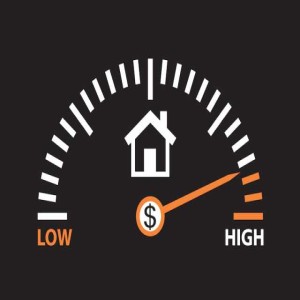

4.2K
Downloads
118
Episodes
Terry Story’s Real Estate Survival Guide podcast includes her weekly round-up on NPR's "The Steve Pomeranz Show," WLRN and affiliates. The show provides expert advice in all aspects of the real estate transaction from listing to negotiations; to sales and purchase and everything in between.
Episodes

Tuesday Sep 03, 2019
Have Real Estate Prices Peaked?
Tuesday Sep 03, 2019
Tuesday Sep 03, 2019
Steve talked with Terry Story, a 30-year veteran at Keller Williams, about the current state of the larger (macro) real estate market. They discussed prices and how prices affect the market and vice versa. Terry also noted the key factors that help to explain whether the real estate market favors home buyers, home sellers, or both.
Home Sales Are On The Rise
Home sale numbers are on the rise. Month over month, we’re looking at about a 2.5% increase. This figure is based on calculations made by the National Association of Realtors. In the thirty days between June and July, 2019 alone, home sales increased by 2.5%. Essentially, it’s shaking out to about 0.6% year over year.
This is an increase in home sales alone; prices aren’t necessarily climbing with it. Part of this is due to the extremely low-interest rates these days. Last year, December of 2018, there was a marked climb in interest rates. It was a big deal at the time, something that spooked people, and the market saw a huge selloff. In the eight months between then and now, home mortgage rates have come down and are staying down.
The Fed has even begun to lower the rates on short term loans, leaving the prevailing interest rates sitting at 3.5% to 4%. These are some of the lowest rates the market has seen in decades.
The Issue Of Home Inventory
So, the other big issue in the macro real estate market is that of house prices. And inventory has a lot to do with it. Real estate is being scooped up because of better rates, and in a lot of places, this is putting home inventory at nearly record-breaking lows, specifically when it comes to homes in the affordable price range.
Home prices have been rising, about 4.5% year over year. It’s been doing this for 89 consecutive months which is definitely a trend—that doesn’t seem to be weakening. Economically speaking, when it comes to the idea of real estate, in particular, things are looking very healthy.
But it’s important to keep in mind that the real estate market is a local thing. What’s happening in California won’t necessarily affect what’s happening to the market in Florida. In identifying market trends, we have to look at what the trends seem to be over time and be paying attention to national trends, regional trends, and local trends.
Rental Properties And Leases
There definitely seems to be a surplus of rental properties. While many investors are swooping in to scoop these properties up and turning them into condos, many others are choosing to leave them as rental spaces for the monthly income they can generate.
If you are a renter, it’s important to pay close attention to your lease agreement. If the property you live in is sold to a new owner or landlord, they don’t have the right to ask for a new security deposit. The new landlord should inquire of the previous owner as to each tenant’s security deposit, as outlined in the lease agreement. They should ask the previous owner for a signed statement (estoppel) or a copy of the existing lease which spells out what tenants are paying/have paid. When they buy the property, they buy the existing leases.
Still, you should do your part as well, by making sure the new owner/landlord knows you’ve paid the deposit amount. Know that you aren’t required to pay the security fee again. Less than honest landlords may try to recollect such payments or make additions to your lease that essentially let them stick their hands back into your pocket.
How The Real Estate Market Is Defined
There are constant references made to whether the current real estate market is a buyer’s market or a seller’s market. But, what does this actually mean? A market is really defined by how much inventory there is. Realtors use the absorption rate. How many months’ worth of home inventory is there? If there are more than six months of inventory to be sold (usually looking at close to seven months), there’s a high supply, making it a buyer’s market. Less inventory, let’s just say five months or less to be sold, it’s a lower supply, which means it’s a seller’s market. The definition of the market is based on inventory—supply and demand.
But it might be a buyer’s market in one price segment and a seller’s market in another. This is because the inventory of houses, as touched on above, in given price ranges can be (and usually is!) dramatically different.
Currently? In the $1 million and up range, it’s very much a buyer’s market. From $500,000 to $1 million, it’s balanced because there’s right around six months’ worth of houses to sell. But it’s a true seller’s market for homes priced below $500,000.
And that’s our weekly Real Estate Roundup. If you’d like to learn more about buying a home or selling your home, head on over to Keller Williams! 8/19
No comments yet. Be the first to say something!